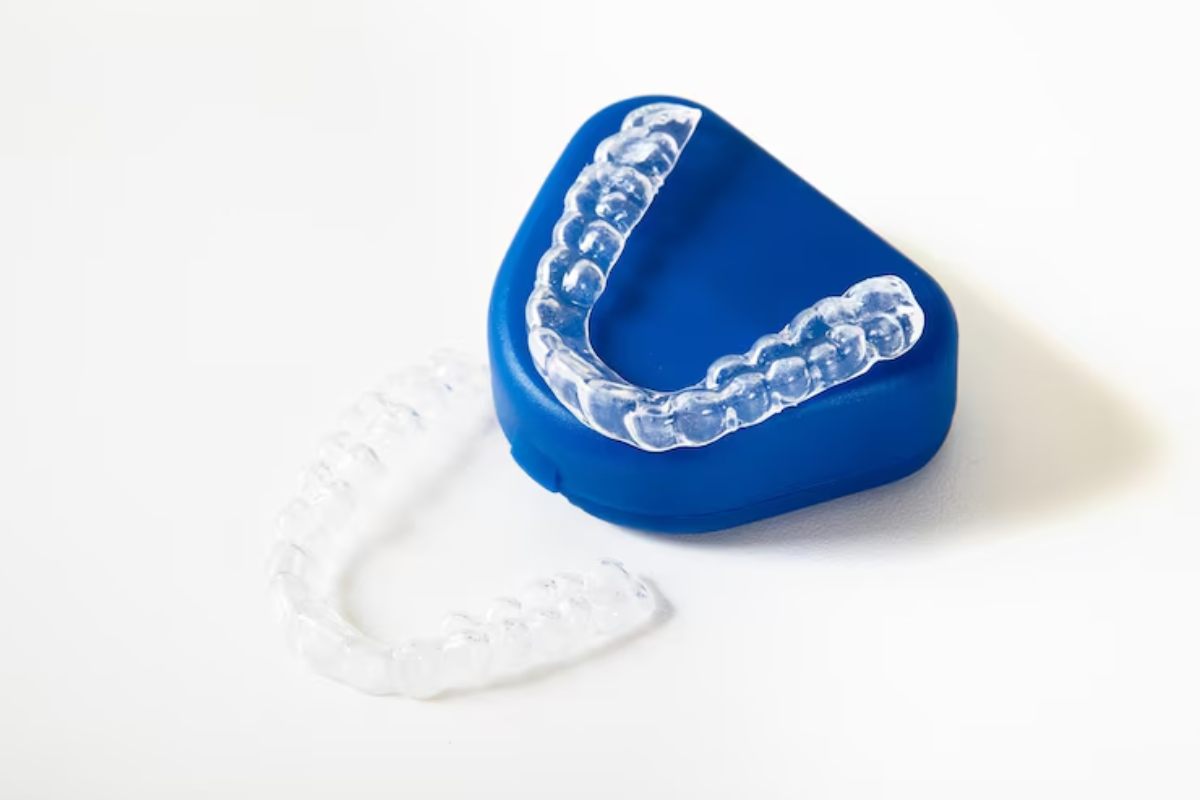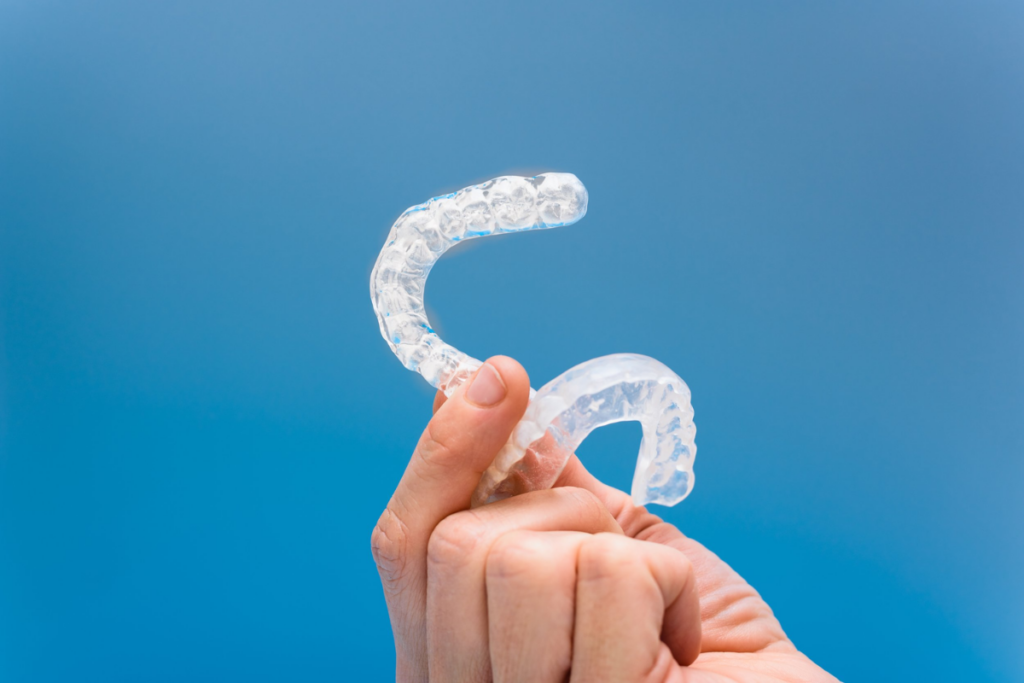We are not a registered Medicare/Medicaid Provider
Can I Wear My Night Guard During the Day?

When it comes to dental health, many people use night guards to protect their teeth from grinding and clenching during sleep. But what if you’re wondering, “Can I wear my night guard during the day?” This question is more common than you might think, and the answer isn’t as straightforward as a simple yes or no. In this blog post, we’ll dive into the various aspects of wearing a night guard during the day, its benefits, potential drawbacks, and what dental professionals have to say about it.
Understanding Night Guards
What is a Night Guard?
A night guard is a dental device made from plastic or acrylic that fits over your teeth. It’s primarily used to prevent teeth grinding (bruxism) and clenching, which can cause severe damage to your teeth and jaw. Night guards can be custom-made by your dentist or bought over the counter. Custom-made night guards are usually more comfortable and effective because they are tailored to fit your mouth perfectly.
How Does a Night Guard Work?
Night guards work by creating a barrier between your upper and lower teeth. This barrier helps to reduce the wear and tear on your teeth caused by grinding and clenching. Additionally, night guards can help alleviate jaw pain, headaches, and other symptoms associated with bruxism.

The Benefits of Wearing a Night Guard During the Day
While night guards are designed for use during sleep, there are several scenarios where wearing a night guard during the day can be beneficial.
Managing Stress and Anxiety
Daytime teeth grinding is often linked to stress and anxiety. If you find yourself clenching your teeth during high-stress situations, wearing a night guard during the day can help. The night guard acts as a physical reminder to relax your jaw and can prevent damage to your teeth caused by daytime grinding.
Protecting Dental Work
If you have recently had dental work such as fillings, crowns, or veneers, wearing a night guard during the day can provide added protection. This is especially important if you tend to grind your teeth, as grinding can damage new dental work.
Relieving Temporomandibular Joint (TMJ) Disorder Symptoms
TMJ disorder is a condition that affects the jaw joint and the muscles that control jaw movement. Symptoms include pain, clicking sounds, and difficulty chewing. Wearing a night guard during the day can help alleviate some of these symptoms by reducing the strain on your jaw muscles.
Post-Orthodontic Treatment
After orthodontic treatment, such as braces, your teeth can be prone to shifting. Wearing a night guard during the day can help keep your teeth in their new positions and prevent them from moving out of alignment.
Potential Drawbacks of Wearing a Night Guard During the Day
While there are benefits to wearing a night guard during the day, there are also potential drawbacks that you should consider.
Speech Impediment
Wearing a night guard can make it difficult to speak clearly. If you have to interact with people frequently during the day, a night guard may interfere with your speech, making communication challenging.
Discomfort and Adjustability
Night guards are designed to be worn at night when you are sleeping and not using your mouth for activities like eating, drinking, or talking. Wearing a night guard during the day might be uncomfortable, especially if it is bulky or ill-fitting. Adjusting to the feel of the night guard in your mouth can take time and patience.
Aesthetic Concerns
Let’s face it: wearing a night guard during the day might not be the most aesthetically pleasing look. If you are self-conscious about your appearance, you might find it uncomfortable to wear a night guard in social or professional settings.
Oral Hygiene
Wearing a night guard for extended periods during the day means you need to be extra vigilant about oral hygiene. Bacteria and plaque can build up on the night guard, which can lead to bad breath and other oral health issues if not cleaned properly.
Tips for Wearing a Night Guard During the Day
If you decide that wearing a night guard during the day is the right choice for you, here are some tips to make the experience more comfortable and effective:
Choose the Right Night Guard
Invest in a high-quality, custom-made night guard from your dentist. Custom night guards are designed to fit your mouth perfectly, making them more comfortable and effective than over-the-counter options.
Keep it Clean
Clean your night guard regularly to prevent the buildup of bacteria and plaque. Use a toothbrush and mild soap or toothpaste to clean it daily, and consider soaking it in a denture cleaner once a week.
Gradual Adjustment
Start by wearing your night guard for short periods during the day and gradually increase the time as you get used to it. This will help you adjust to the feel of the night guard in your mouth and reduce any discomfort.
Stay Hydrated
Drinking plenty of water can help keep your mouth hydrated and reduce any discomfort caused by wearing a night guard.
Practice Speaking
If wearing a night guard during the day affects your speech, practice speaking with it in your mouth. This can help you get used to talking with the night guard and reduce any speech impediments.
So, can you wear your night guard during the day? The answer is yes, but there are some caveats. There are several benefits to wearing a night guard during the day, such as managing stress, protecting dental work, and alleviating TMJ disorder symptoms. However, there are also potential drawbacks, including speech impediments, discomfort, and aesthetic concerns.
If you decide to wear a night guard during the day, choose a high-quality, custom-made guard, keep it clean, and gradually adjust to wearing it. Most importantly, consult with your dentist to ensure that it’s the right choice for your specific needs and to address any underlying issues causing daytime grinding or clenching.
By taking these steps, you can protect your dental health and find relief from the symptoms associated with teeth grinding and clenching, both day and night.